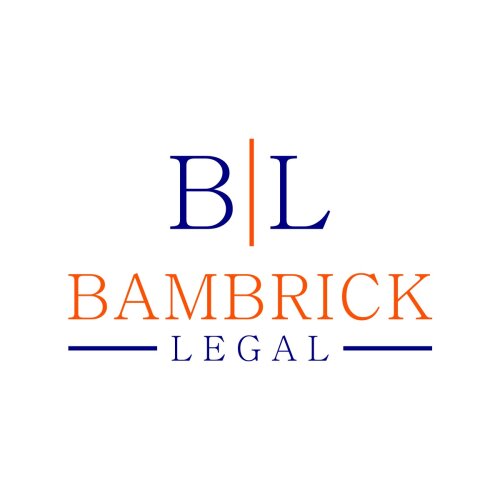Best Corporate & Commercial Lawyers in Adelaide
Share your needs with us, get contacted by law firms.
Free. Takes 2 min.
List of the best lawyers in Adelaide, Australia
About Corporate & Commercial Law in Adelaide, Australia
Corporate and Commercial law in Adelaide, South Australia, covers the legal rules and regulations governing the operation, formation, management, and conduct of companies and businesses. This area of law is essential for businesses of all sizes, ranging from small start-ups to large corporations. Adelaide’s legal environment is shaped by both state and federal laws, ensuring local businesses operate within guidelines that foster fair trading, secure commercial contracts, protect intellectual property, and promote ethical corporate governance.
The field covers a wide spectrum, including company formation, mergers and acquisitions, contract law, franchising, joint ventures, employment law, property transactions, and dispute resolution. Whether you are launching a new business, expanding your operations, or facing a complex business dispute, understanding the legal landscape in Adelaide is vital to protecting your interests and staying compliant with the law.
Why You May Need a Lawyer
There are various reasons why individuals and businesses in Adelaide may seek legal advice or representation in corporate and commercial matters. Some of the most common situations include:
- Establishing a new company or restructuring an existing business
- Drafting, negotiating, or reviewing commercial contracts and agreements
- Managing mergers, acquisitions, partnerships, or joint ventures
- Dealing with disputes between business partners, shareholders, or third parties
- Addressing employment law concerns, such as employee contracts and workplace disputes
- Navigating intellectual property issues like trademarks and patents
- Ensuring compliance with consumer protection, fair trading, and competition laws
- Managing insolvency, bankruptcy, or debt recovery matters
- Handling franchising arrangements
- Resolving property or lease-related business issues
Engaging a skilled lawyer can help prevent costly mistakes, ensure compliance, protect your company’s reputation, and ultimately support the successful growth and operation of your business.
Local Laws Overview
Corporate and commercial activities in Adelaide are governed by a combination of state and federal legislation. Key pieces of legislation include the Corporations Act 2001 (Commonwealth), the Competition and Consumer Act 2010 (Commonwealth), and the Fair Trading Act 1987 (South Australia). These laws are supported by common law principles and specific regulations that affect different industries and business practices.
Some important aspects of local laws to consider include:
- Company registration and reporting obligations with the Australian Securities and Investments Commission (ASIC)
- Consumer rights and protections under both federal and South Australian law
- Competition laws that prevent anti-competitive conduct, price fixing, or abuse of market power
- Requirements for fair and accurate advertising and representation of goods and services
- Workplace laws and obligations under Fair Work Australia as well as South Australian employment statutes
- Rules regulating business names, licenses, and permits
- Dispute resolution pathways, including mediation, arbitration, and litigation in South Australian courts
Staying up to date with these laws can protect you from legal risks and create a solid foundation for your business operations in Adelaide.
Frequently Asked Questions
What is the difference between corporate law and commercial law?
Corporate law typically deals with company formation, structure, governance, and compliance with corporate regulations. Commercial law covers broader business activities, including contracts, sales, franchising, and trade practices.
How do I register a business in Adelaide?
You must apply for an Australian Business Number (ABN) and, if applicable, register the company with the Australian Securities and Investments Commission (ASIC). You may also need to register a business name and obtain relevant local permits.
Do I need a lawyer to draft business contracts?
While not legally required, having a lawyer draft or review your contracts can help you avoid loopholes, protect your interests, and ensure the agreements are legally enforceable under South Australian and national law.
What are the legal requirements for starting a company?
You need to decide on a business structure, register the company with ASIC, and comply with ongoing reporting and regulatory requirements. There may also be industry-specific licenses or approvals needed.
How are disputes between business partners commonly resolved?
Disputes can be resolved through negotiation, mediation, arbitration, or, if necessary, court proceedings. Many agreements include specific dispute resolution clauses outlining the preferred process.
What are directors’ legal obligations in Adelaide?
Directors are required to act in the best interests of the company, exercise care and diligence, avoid conflicts of interest, and comply with reporting and disclosure obligations as set out in the Corporations Act 2001.
How does employment law affect my business?
Australian and South Australian employment legislation governs employee rights, minimum wages, contracts, workplace safety, unfair dismissal, and discrimination. Failing to comply can lead to legal disputes and penalties.
Are there specific laws for franchising in South Australia?
Yes, franchising is regulated by the Franchising Code of Conduct, which sets out rights and obligations for both franchisors and franchisees. State and federal consumer laws may also apply.
What is involved in a business acquisition?
A business acquisition involves due diligence, valuation, negotiations, contract drafting, regulatory approvals, and finalising the sale. Legal advice is recommended to ensure a smooth and compliant process.
What steps should I take if my business is facing insolvency?
To protect your position, seek immediate legal and financial advice. You may need to consider restructuring, voluntary administration, or liquidation, depending on your situation and obligations to creditors.
Additional Resources
There are several resources and organizations in Adelaide and Australia that provide guidance and support for corporate and commercial matters:
- Australian Securities and Investments Commission (ASIC) - Regulates companies and financial services
- Australian Competition and Consumer Commission (ACCC) - Oversees competition and consumer protection laws
- Small Business Commissioner South Australia - Provides assistance and advice to small businesses
- Law Society of South Australia - Offers lawyer referrals and information on legal practitioners
- South Australian Civil and Administrative Tribunal (SACAT) - Handles commercial leasing disputes and other matters
- Australian Business Register - For business registrations and ABNs
- Office of the Australian Information Commissioner - Guidance on privacy and data protection for businesses
Next Steps
If you need legal assistance with a corporate or commercial matter in Adelaide, consider the following steps:
- Identify the specific legal issue or area where you need advice or representation
- Gather any relevant documents, contracts, or correspondence related to your matter
- Research and contact a local lawyer or law firm that specializes in corporate and commercial law
- Schedule an initial consultation to discuss your needs and explore your options
- Ask about fees, service agreements, and the lawyer’s experience in similar matters
- Follow your lawyer’s advice and maintain clear communication throughout your case or transaction
Taking prompt and informed action can help you resolve challenges effectively and build a solid legal foundation for your business in Adelaide.
Lawzana helps you find the best lawyers and law firms in Adelaide through a curated and pre-screened list of qualified legal professionals. Our platform offers rankings and detailed profiles of attorneys and law firms, allowing you to compare based on practice areas, including Corporate & Commercial, experience, and client feedback.
Each profile includes a description of the firm's areas of practice, client reviews, team members and partners, year of establishment, spoken languages, office locations, contact information, social media presence, and any published articles or resources. Most firms on our platform speak English and are experienced in both local and international legal matters.
Get a quote from top-rated law firms in Adelaide, Australia — quickly, securely, and without unnecessary hassle.
Disclaimer:
The information provided on this page is for general informational purposes only and does not constitute legal advice. While we strive to ensure the accuracy and relevance of the content, legal information may change over time, and interpretations of the law can vary. You should always consult with a qualified legal professional for advice specific to your situation.
We disclaim all liability for actions taken or not taken based on the content of this page. If you believe any information is incorrect or outdated, please contact us, and we will review and update it where appropriate.
Browse corporate & commercial law firms by service in Adelaide, Australia
Adelaide, Australia Attorneys in related practice areas.

















